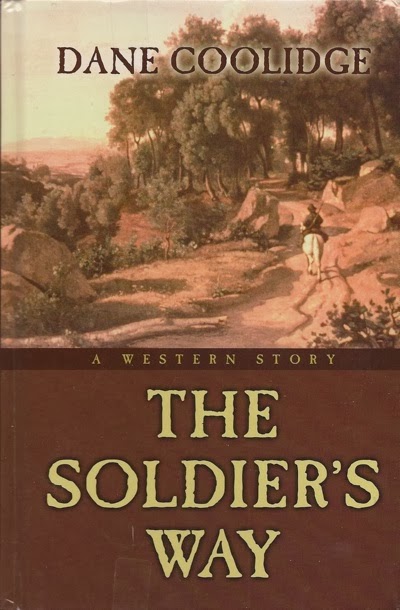Plot and character.
Crittendon hires Pecos to alter the brands on any of Upton’s cattle he finds on
the range. Meanwhile, the local sheriff, Boone Morgan, is alert to any signs of
cattle theft, and when Crittendon falsely accuses Pecos of stealing a cow, he
gets hauled in to the county jail, to await trial.
 |
| Pecos draws his pistol |
Pecos, as Dane Coolidge describes him, was “born a Democrat and
taught to love whiskey and hate Mexicans.” However, he has begun reading an
anti-capitalist newspaper, The Voice of Reason, which has opened his eyes to the corrupt law enforcement system used
by the rich to oppress the poor. Sheriff Morgan soon learns he has incarcerated
an outspoken advocate of revolution.
Cracking heads, Pecos immediately overturns Morgan’s use
of a prisoner-run kangaroo court for maintaining order in the jail. Joined by a
friend and fellow revolutionary, Angevine “Babe” Thorne (jailed for drunk and disorderly),
and winning the respect and protection of the Mexican prisoners, Pecos takes
charge behind bars. He is soon getting preferred treatment from Hung Wo,
provider of the jail’s meal service.











